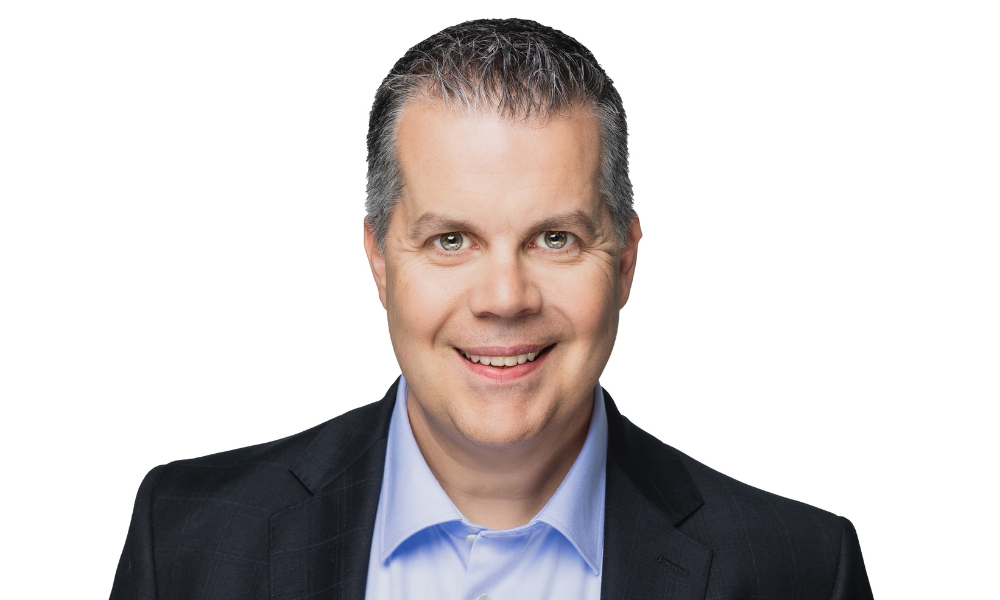Employers will need to rethink how they support employees when preparing for retirement, head of GreenShield Insurance says

The transition to retirement should be a time of excitement and new possibilities, but for many Canadians, it’s clouded by concerns over healthcare access and affordability.
A recent healthcare report from GreenShield highlights the struggles retirees are facing when it comes to navigating the healthcare system, urging employers to increase education and support.
JP Girard pointed to the shifting landscape of healthcare as a major source of stress for retirees.
“More than 50 per cent of Canadian retirees said despite having more time to focus on their health and wellbeing, obtaining and navigating health coverage and care remains so expensive and complicated,” said Girard, executive vice president and head of GreenShield Insurance.
According to GreenShield, 63 per cent of retirees are concerned about access to health care to address concerns as they age, in addition to 57 per cent of retirees who are more worried about their healthcare since retiring.
Consequently, roughly half of those respondents cited declines in the healthcare system, challenges with finding a primary physician, and long wait times, Girard noted.
Girard pointed to his own experience to back up GreenShield’s findings.
“Personally, I think of my own dad,” he said. “He's 80 now, and he's been going through this journey since he retired about 10 years ago. He's gone through all of this. He lost his doctor, was diagnosed with a chronic condition, and is now trying to figure out how to navigate the system.”
“We're having this conversation today because the system has changed over the past number of years,” added Girard.
Historically, many retirees could count on employer-sponsored benefits to carry them through their later years. That’s no longer a given. Girard draws a stark contrast between previous generations and today’s retirees.
“My grandparents were with employers, and they had post-retirement benefits. It was never an issue,” said Girard. “They never talked about costs… I mean, the doctor used to come to their house. That's the generation they lived in.”
For today’s retirees, the reality is far different. This includes a growing number of Canadians who are opting for self-employment or leaving traditional jobs without employer-backed benefits, leaving more people to navigate healthcare costs on their own.
GreenShield’s report also revealed 53 per cent of self-employed Canadians say the process of looking for and applying for health coverage is complicated or confusing, as well as 33 per cent who are worried about not having adequate coverage.
To stay competitive, employers will need to rethink how they support employees when preparing for retirement. While salary and workplace flexibility remain top considerations for many job seekers, comprehensive mental health benefits packages are increasingly driving employment decisions.
“A survey we did earlier this year found that one in three Canadians would leave their current job for more comprehensive mental health benefits. That demand for mental health support has risen and there's a growing number of calls for employers to step up,” said Girard, while also pointing to his phone, alluding to more digital telemedicine services.
“Employees want timely access for care on their own terms, in a digital environment and they need to have it at their fingertips.”
With 25 per cent of respondents admitting they sometimes forego healthcare services to save money, the financial strain of healthcare costs is also leading some retirees to rethink their decision to leave the workforce entirely.
While some may work longer for financial reasons, others may extend their careers simply to maintain access to employer-sponsored benefits.
“I assume that people extend their retirement age for financial reasons. They just can’t afford to retire. There could be certain situations where people say, ‘Well, I don’t want to give up my benefits so I’m going to continue on.’”
Health benefits, particularly those that extend into retirement, are becoming a crucial factor in long-term financial security. Yet, many employers fail to educate employees on their options, leaving them unprepared when they exit the workforce.
Girard suggested employers and plan sponsors would do well to consider implementing services like health coaching or financial planning in benefits as potential strategies.
Additionally, employers who take an active role in preparing their workforce for retirement long before their final working years can help mitigate the shock many retirees experience when they lose access to workplace benefits.
“If you have a DB or DC plan, you know what your next steps are. With the transition to retirement, it all depends on which province you live in, what you can afford, and if there’s a program available via the employer. Where I think employers need to support the issues of retirees, or soon to be retirees, is really around education,” said Girard, emphasizing proactive education and greater transparency around health benefits can make all the difference.
“I think that employers and plan sponsors can take a greater role in supporting employees through that. As we see the number of self-employed and retired Canadians continue to grow, these findings make it clear that we need to continue to focus on finding better solutions,” he said.



